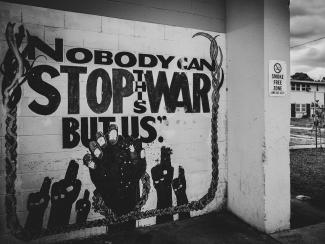
On April 28, 1992, hundreds of Black people from the Bloods and Crips gangs came together to celebrate something special: a truce.
Hope was in the air. Then Watts was set afire.
The Watts Rebellion after the beating of Rodney King actually cemented the idea of pro-Black unity across ‘enemy’ lines.
By May, they drafted a $3 billion proposal to the mayor and law enforcement: if the city helped them rebuild, the gangs would keep the peace. They wanted better schooling, jobs, healthcare, and an end to drug trafficking and police brutality.
They wanted equality and justice. “If they want us to work with the system then they have to show they gonna treat us right,'' said one truce member.
But, unfortunately, the system didn’t work with them.
Even though the gangs held up their end of the deal – homicides dropped by 44% in one year – the LAPD claimed that the truce “promoted violence against the police.” In fact, they even used peace-promoting parties as an excuse to arrest masses of Black people at once!
Police failed to do the right thing because the object of policing isn't to keep Black people safe. They want us to fight each other so they can react with brutality.
But our history shows us that it’s possible for us to keep each other safe, by building communities invested in Black unity.